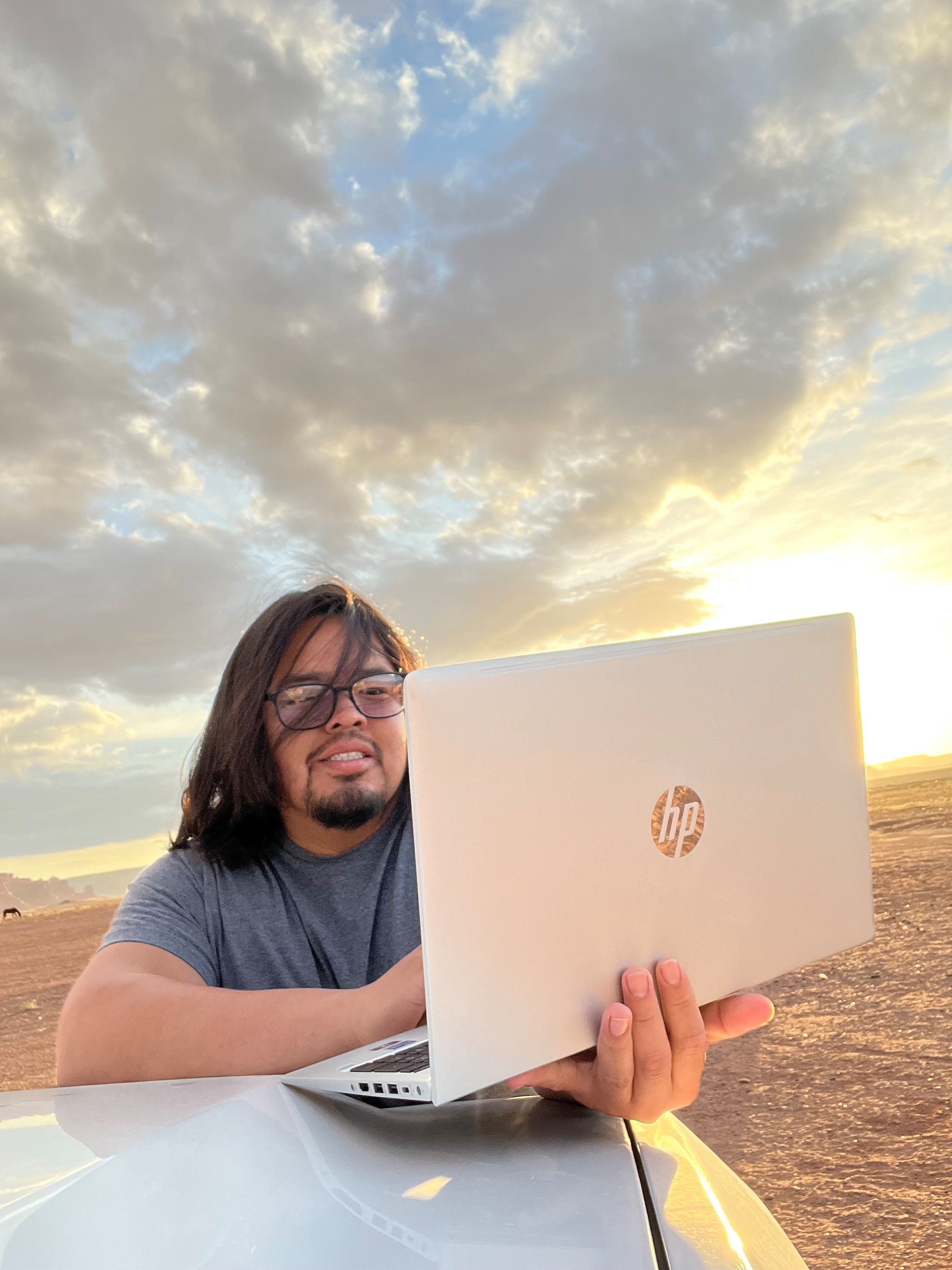Gabriel Tahy lives in the middle of Navajo Nation – surrounded by mesas and close to the family members who help him learn more about Navajo culture and traditions.
But living on the reservation has meant sacrificing connectivity to the Internet.
When you’re on the Rez, a lot of things become less convenient – one of the things is cell phone reception and 5G service,” said Tahy, 33, who lives on Navajo Nation land near the border between Arizona and New Mexico. “But it’s home.”

Tahy returned earlier this year from Phoenix and resumed classes at Diné College. His re-enrollment (he last attended in 2012) was made possible in part by the college’s free laptop and Wifi hotspot program, funded by a Connecting Minority Communities Pilot Program grant from NTIA.
The NTIA grant provided more than $2.9 million to Diné for its Connect Navajo program, which is meant to improve Internet access, provide hardware, and invest in IT staff. The school has provided 225 hotspots and 250 laptops so far.
“The response has been great,” said Shannon Parrish, application support specialist at Diné College. “We’re so remote. The students need that Internet connection, and they need a device. I mean, there are people doing homework on their phones.”
Without the college-provided laptop, Tahy said he would be using his computer from 2012, which he described as a “dinosaur.” And finding a cell signal is another challenge.
Tahy lives about an hour from the nearest big grocery store and said, “there's a mesa to my left, and to the right.
“I’m pretty much surrounded by mesas,” Tahy said. “Those mesas throw everything off and you don’t get a very good signal. The hotspot is way better – it came in handy big time.”
Tahy’s sister is attending school, and the hardware the school is providing – plus free tuition – helped him decide to re-enroll to go for his Bachelor’s degree. Without the school’s support, he faced tough choices about returning to advance his education.
Why Internet for All matters to me: “The main reason I needed the Internet is to go to school. Obtaining an education is very important – people need to be informed.” – Gabriel Tahy, 33, Navajo Nation.
Read More ConnectingUS Stories
Internet For All is already changing lives. Learn more about how increasing access to high-speed Internet service is improving the lives of every day Americans across the country.

